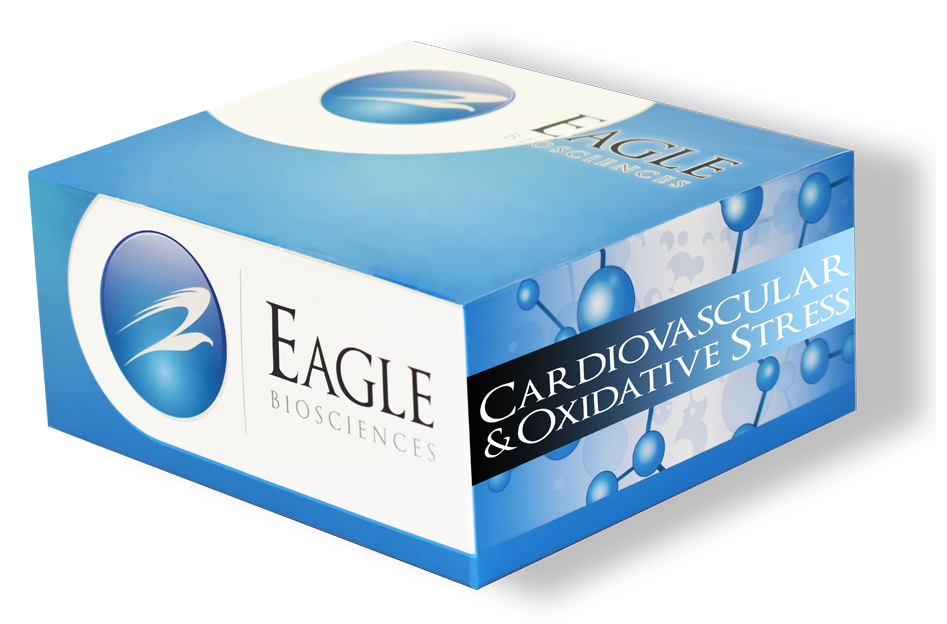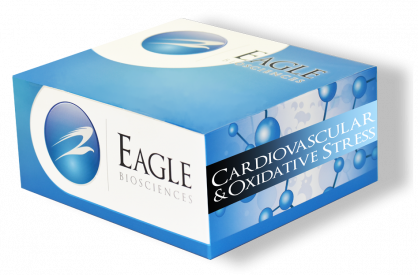GSH GSSG Cuvette Assay
The GSH GSSG Cuvette Assay is For Research Use Only
Size: 100 Assays
Sensitivity: 0.1 µM
Standard Range: 0.1 – 3 µM
Incubation Time: 20 minutes
Sample Type: Biological Fluids
Sample Size: 200 µl
Product Developed and Manufactured in the USA
Assay Background
Reduced glutathione (GSH) is a tripeptide (g-glutamylcysteinylglycine) that contains a free thiol group. GSH is a major tissue antioxidant that provides reducing equivalents for the glutathione peroxidase (GPx) catalyzed reduction of lipid hydroperoxides to their corresponding alcohols and hydrogen peroxide to water. In the GPx catalyzed reaction, the formation of a disulfide bond between two GSH molecules gives rise to oxidized glutathione (GSSG). The enzyme glutathione reductase (GR) recycles GSSG to GSH with the simultaneous oxidation of b-nicotinamide adenine dinucleotide phosphate (b-NADPH2). When cells are exposed to increased levels of oxidative stress, GSSG will accumulate and the ratio of GSH to GSSG will decrease. Therefore, the determination of the GSH/GSSG ratio and the quantification of GSSG are useful indicators of oxidative stress in cells and tissues.
SAMPLE COLLECTION AND STORAGE
The following steps are for whole blood samples. See NOTES REGARDING SAMPLES section of package insert for additional information regarding the use of whole blood and guidelines for using other sample types.
GSSG Sample:
1. Add 30 µL of Scavenger to a microcentrifuge tube.
2. Carefully add 100 µL of whole blood to the bottom of the centrifuge tube and mix gently.
3. Freeze sample at –70°C; it is stable for at least 30 days.
GSH Sample:
1. Carefully add 50 µL of whole blood to the bottom of a microcentrifuge tube.
2. Freeze the sample at –70°C; it is stable for at least 30 days.
Related Products
GSH / GSSG Microplate Assay Kit
Glutathione Total Assay Kit
GST Alpha ELISA Assay


